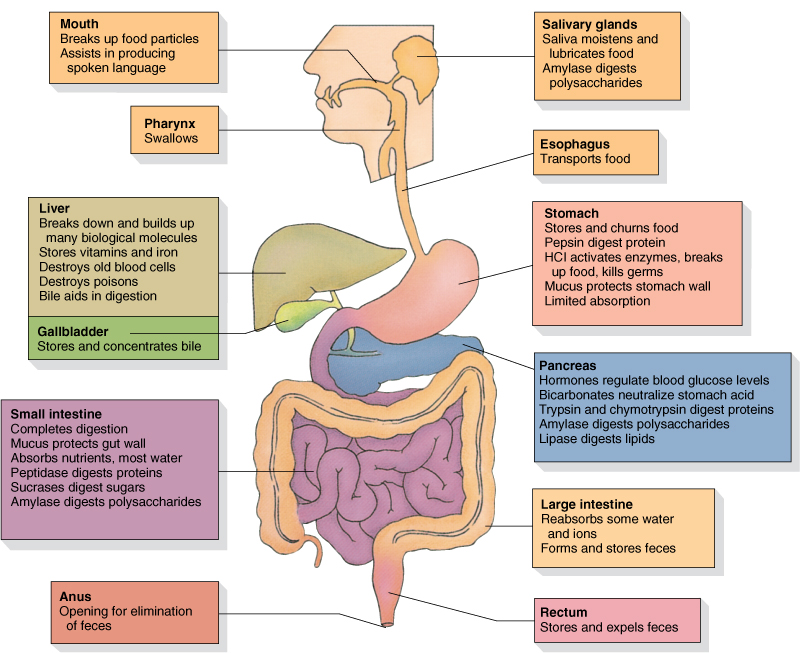Should you Avoid Water with Meals to Improve Digestion?
This question has come up a few times over the last few months and sometimes me just saying how it is isn't enough without the science to back it up. Now I am definitely impressed that I am being questioned, I also hope you are questioning every source of nutrition information you receive. I am happy to back up my stance with science - just make sure everyone you use for nutrition knowledge can do the same.
Now the short answer is NO, drinking some water with your meals will not impair your digestion so if that is all you are looking for then no need to read on, but if you want to know WHY this is the case and start to educate others on why then please keep reading. Also please share this with anyone who disagrees with the fact that water at the meal won't impair digestion or anyone who you think might find this interesting.
Okay first up, how could water possibly impair digestion? The theory is that water with a meal will dilute the digestive enzymes thus meal that inadequate digestion occurs due to this dilution.
So let's break this down by going through the physiology of digestion. This isn't all stages of digestion - I've kept it to the specifics of what people might perceive as something that could be impaired by water. If I was to go through the whole digestive process you'd be here all week. Now I don't have research papers to 'back this up' because this is human physiology if you want to back this up I suggest getting yourself a digestive physiology text book like that used in medical schools. This is just how the body works, how we have known it to work for many, many years.
The digestive processes that occur in the stomach are
Physical breaking down of food by churning of the stomach
Hydrochloric Acid (HCl) which creates a very acidic environment
Pepsin an enzyme that breaks down protein
Gastric lipase an enzyme that breaks down fats
Gastric amylase an enzyme that breaks down carbohydrates
The three types of meal compositions I am going to discuss are:
Mixed Meal (MM) - Water and a solid food
Solid Meal (SM) - Only a solid food - no water
Liquid Meal (LM) - A homogenised meal e.g. smoothie
The physical churning of the stomach will still occur to the same degree with a MM or SM this is because the process of churning is needed to physically break down food, so any solid that is in the stomach that needs breaking down will prompt churning. A LM may not bring about this churning to the same degree as the blender you made the drink in, has already done this physical process before you consumed the LM. A LM only requires enzymatic digestion, not physical.
On to the acidity of your stomach. The pH (level of acidity) of your stomach is tightly regulated to 2 (very acidic) when empty and raises to around 4 once the food is in the stomach being digested. This presence of food in the stomach regardless of if it is MM, SM or LM will raise the pH of the stomach to around 4. Once there is food in the stomach the stretch receptors on the walls of the stomach are activated due to the physical distention of the stomach. This then begins a hormonal and enzymatic cascade of events that leads to the secretion of HCl to keep the stomach acid plus the digestive enzymes lipase, pepsin and amylase. As I said this happens because of distention - the mixture of the meal whether it is liquid/solid or mixed doesn't affect this.
So the ‘theory’ is that if you drink water, you will dilute the HCl, increase the pH of your stomach and potentially dilute the enzymes as well. So how much water do we need in the stomach to increase the pH or dilute these enzymes?
The best thing here is that some people who are better at math than I am have worked this out based on average amount of stomach acid residing in the stomach and the pH of water. And this number is approx 1.8L of water (in one sitting). Now what is not taken into consideration here is that as with nearly every process in our body, we have feedback loops. Our stomach has a homeostatic feedback mechanism to tightly regulate the pH so that as you start smashing back water with your meal (hardcore smashing to get in nearly 2L plus your meal in one go) your body is adjusting to release more HCl to prevent this change in response to the feedback of excess fluid and changing pH. So in short, as you eat and drink LOTS your stomach is recognising this and pushing out more HCl to keep the stomach acidic.
So this alters the previous calculation and the actual amount you need to increase the pH of your stomach and dilute HCl would likely be at least another 1-2L more due to this feedback mechanism trying to regulate your stomach pH to optimal levels. So we are currently at about 3-4L water with your meal (again this is all within a 20 min period). Now if you can do all that in 20 mins without vomiting, I would be almost impressed, but I would also suggest you get yourself to a hospital ASAP because you just severely over-hydrated and your electrolytes are going to be going haywire and you could be at serious risk of death. So dilution of pH to a level that impedes digestion in the stomach is probably not possible, well at least not possible unless you are willing to risk death from overhydration.
When it comes to the specific enzymes (the pepsin, lipase and amylase) these are released like I said in the stomach but also in the duodenum (first part of the small intestine). What triggers the release of these enzymes in the stomach is via that cascade of hormonal signals that were initiated by the stretch receptions (aka the presence of food/liquid in the stomach). These enzymes attach themselves to the respective nutrients (protein, carbohydrate and fat) so the presence of water does not make them any less effective. They search out the nutrient and attach themselves to begin breaking the nutrient down, this happens in the presence or absence of water, water will not alter their actions. Unless there is some dysfunction with your ability to produce digestive enzymes e.g. unmanaged coealic disease or inadequate HCl you will continue to produce the digestive enzymes you need to break down the components of the meal. Won't go into what can reduce stomach acid here but there are a lot of things - this another issue though, nothing to do with water at the meal.
When the meal is completely homogenized as a LM then there is a difference with digestion, and I won't go into that today because that is another article entirely. Safe to say the presence of any solid in the stomach slows the digestion down and allows for proper enzymatic processes to occur in a healthy individual (obviously if you have issues with stomach acid and enzymes anyway this would be different).
Where water at meals might be an issue:
GERD - Water at meals can lead to more volume of the meal and can contribute to more reflux.
Inadequate chewing - If you are drinking water at the meal to wash down your mouthful without chewing it adequately this means the stomach has to work much harder in an attempt to breakdown the food into smaller components for further digestion. When you inadequately chew a meal you don't allow time for digestive enzymes to be produced in large quantities
One thing that also stands to confirm that water doesn't dilute digestive enzymes is that we have zero studies that prove that water will dilute enzymes. If this was a significant concern it is a simple enough study to conduct and prove otherwise, yet it hasn't been done. What I suspect is that these studies haven't been conducted because when you think about normal physiological digestion this just isn't an issue so why waste research money to study something they already know based on the physiology of the digestive system. So next time someone tells you that you cannot digest your meals properly with water ask them how that physiologically happens and the science to prove that.
I cannot go into all the details of digestion here like I said earlier because it is just too complex and long but essentially digestion is a PROCESS and there are many steps involved that begin in the mouth all the way along the digestive tract. This process has been developed to best digest and absorbs food in the most effective way so that carbohydrates, proteins and fats are all digested adequately (in an optimal health state) even when in the presence of a fluid or in combination (aka combined meal of protein and carbs).
I hope that clarifies things for you a little, please share with anyone and everyone and if you haven't already signed up to my mailing list please scroll down and enter your email.
Marika x
https://www.ncbi.nlm.nih.gov/pubmed/2510
https://www.ncbi.nlm.nih.gov/pubmed/371939

